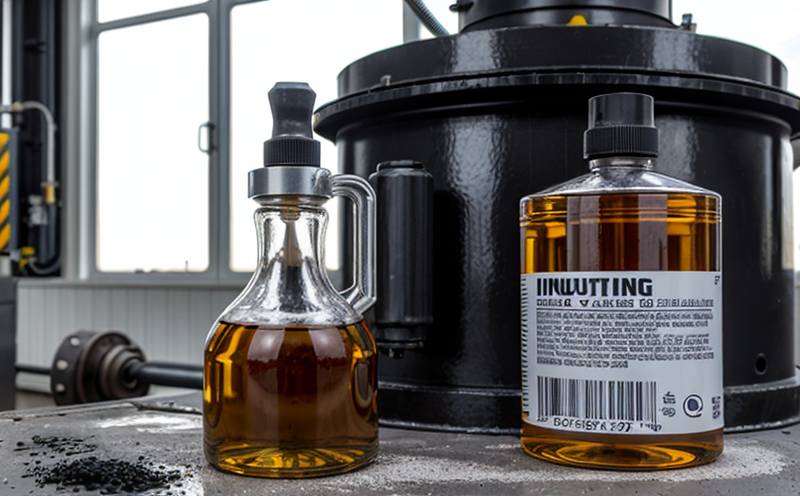BS EN ISO 3675 Density Testing of Oils
The BS EN ISO 3675 standard is a critical method used to determine the density of petroleum products and their blends. This test is essential in ensuring that industrial oils meet specific quality standards, which are crucial for optimizing equipment performance and extending service life.
Density is a key physical property that helps identify various types of oil and additives. For instance, it can distinguish between different grades or viscosities of lubricants used in machinery such as hydraulic systems, bearings, and engines. Accurate density measurements are vital for quality assurance and compliance with industry-specific standards.
The testing process involves precise sample preparation and measurement using calibrated apparatus like a pycnometer, which is designed to measure the volume of materials at different temperatures. The oil sample must be prepared according to ISO 3675 guidelines; this includes ensuring it is free from air bubbles and other contaminants that could affect the reading.
The process begins with selecting an appropriate temperature for testing based on the type of oil being analyzed, as density can vary significantly at different temperatures. Once the sample is prepared, it undergoes measurement in a controlled environment to ensure accurate results. The final step involves calculating the density using the formula: Density = Mass / Volume.
It's important to note that small variations in temperature or pressure can lead to significant discrepancies in the measured density. Therefore, maintaining strict adherence to ISO 3675 procedures is essential for reliable outcomes.
In addition to its role in quality control, this test plays a crucial part in monitoring oil degradation over time. As oils age, their chemical composition changes, leading to altered densities that can indicate the need for replacement or further analysis. Regular density testing helps facilities manage their inventory more effectively by identifying when an oil blend is nearing its optimal performance window.
For R&D engineers and quality managers working in the industrial sector, understanding these nuances ensures they stay compliant with international standards while optimizing operational efficiency across various applications.
Benefits
Accurate density testing of oils provides numerous benefits for both manufacturers and end-users:
- Quality Assurance: Ensures that all batches meet the required specifications, enhancing product reliability.
- Cost Efficiency: By identifying substandard products early, companies can minimize waste and reduce production costs.
- Environmental Compliance: Helps in meeting environmental regulations by ensuring that emissions are within acceptable limits.
- Equipment Protection: Ensures that lubricants used in machinery perform optimally, thereby protecting expensive equipment from premature failure.
Industry Applications
Density testing of industrial oils is widely applied across various industries including automotive manufacturing, aerospace engineering, and heavy machinery operations. Here are some specific areas where this service finds application:
- Aerospace: Ensuring the correct type of hydraulic fluid is used in aircraft systems.
- Automotive: Verifying that engine oils meet stringent performance criteria set by automotive manufacturers.
- Mining: Monitoring lubricant quality to enhance mining equipment longevity and safety.
- Construction: Guaranteeing the use of appropriate hydraulic fluids for construction machinery.
Eurolab Advantages
EuroLab specializes in providing high-precision BS EN ISO 3675 density testing services tailored to meet the unique needs of industrial clients. Our advantages include:
- Expertise: Leveraging years of experience in oil analysis and compliance with international standards.
- Technology: Utilizing advanced pycnometers and other state-of-the-art equipment for accurate measurements.
- Compliance: Ensuring all tests adhere strictly to ISO 3675 guidelines, guaranteeing reliable results.
- Speed: Offering fast turnaround times without compromising on quality.
We offer comprehensive support from sample preparation through to final report generation. Our team of experts ensures that every test is conducted with precision and integrity, providing clients with the confidence they need for decision-making processes.





